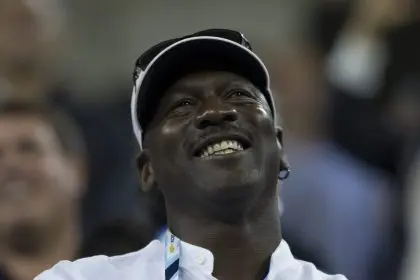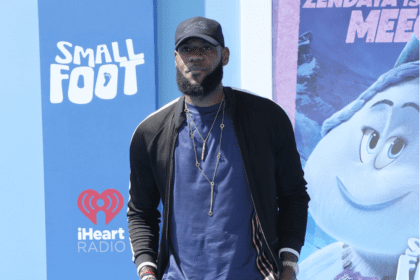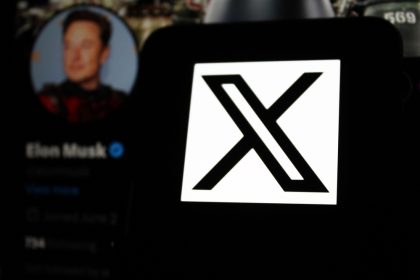Scottie Pippen, the legendary NBA Hall of Famer, is making headlines for more than just his basketball accolades. His latest social media escapades involving Elon Musk have ignited a firestorm of criticism and mockery onX (formerly Twitter). In a post that blended humor with AI-generated visuals, Pippen shared an image of Musk in a Chicago Bulls jersey and asked, “How many championships would we have won with @ElonMusk?” What may have been intended as a lighthearted question quickly turned into a social media spectacle, with fans and critics alike weighing in.
The backlash begins
Social media can be unpredictable, and Scottie Pippen learned this firsthand. Instead of sparking playful debate, the post drew harsh reactions, many of which targeted his personal life. Comments flooded in referencing his ex-wife, Larsa Pippen, and the tabloid-fueled rumors surrounding her alleged infidelity.
One user referenced rapper Future’s rumored affair with Larsa, writing, “No wonder Future did you like that,” alluding to a public narrative that has followed Pippen for years. Another comment struck an even harsher tone, quipping, “This is why your wife cheats on you with your son’s co-workers,” hinting at Larsa’s rumored relationship with one of Scottie’s son’s teammates.
The internet’s response was relentless. Users continued to pile on with sarcastic remarks and memes, turning what started as a sports-themed post into a critique of Pippen’s personal life.
Pippen’s response
Despite the onslaught of criticism, Scottie Pippen seemed unfazed. His follow-up tweet suggested he found humor in the situation. “Y’all are funny. I’m following my favorite comments,” he posted, signaling a lighthearted attitude toward the backlash.
But Scottie Pippen wasn’t done. He doubled down with another AI-generated image, this time featuring himself and Michael Jordan squaring off against Tesla robots. The caption read, “Who would win in a 7 game series?” The second post, however, did little to quell the criticism. If anything, it reignited the conversation.
Responses ranged from sarcastic to outright dismissive. One user joked, “Athletes gotta stop selling their social media accounts,” while another added, “Take unc phone,” implying Pippen should be stopped from posting altogether.
Motivations behind the tweets
Why did Pippen post these AI-generated images? The motivations are unclear, but some speculate he may have recently become interested in cryptocurrency or AI technology. By featuring Musk—a figure synonymous with tech and innovation—Pippen may have been attempting to boost engagement. However, the results suggest the strategy may have backfired.
For public figures, social media presents both opportunities and risks. Pippen’s experience underscores how quickly a post can spiral out of control, especially when it touches on personal or controversial topics. His tweets, while likely intended as harmless fun, opened the door for a wave of criticism that overshadowed any intended humor.
The fine line of social media for public figures
Scottie Pippen’s situation isn’t unique. Many celebrities struggle to balance authenticity and engagement on social media without inviting unwanted scrutiny. The digital age demands constant interaction, but it also exposes public figures to heightened criticism. What one person finds funny, another may find offensive or inappropriate.
Scottie Pippen’s decision to engage with critics by liking and following comments shows a willingness to roll with the punches, but it also highlights the unpredictability of social media. In a space where every post is open to interpretation, even a well-meaning joke can take on a life of its own.
Lessons from Scottie Pippen’s social media saga
There are lessons to be learned from Pippen’s recent experience. First, context matters. While AI-generated images and playful hypotheticals may seem innocuous, they can evoke strong reactions, especially when personal histories are involved.
Second, public figures must tread carefully when referencing popular or polarizing figures like Musk. While Musk is known for his own controversial tweets and bold ventures, aligning with him can be a double-edged sword. For some fans, it adds intrigue. For others, it raises questions about motives and authenticity.
Finally, the incident serves as a reminder that humor doesn’t always translate well online. What works in a conversation among friends may not resonate with a broader audience, particularly one as diverse as Pippen’s followers.
Conclusion
Scottie Pippen’s recent social media posts have sparked more than just a conversation—they’ve ignited a debate about celebrity engagement, humor, and the fine line between playfulness and controversy. As Pippen navigates the digital landscape, it remains to be seen how he will adapt his approach in light of the feedback he’s received.
For fans and followers, Pippen’s tweets are a reminder of the ever-evolving nature of social media. In a world where every post can go viral, public figures must balance authenticity with caution. Whether Pippen chooses to continue embracing humor or shifts to a more measured strategy, one thing is clear: social media is a game with its own set of rules.
As the story unfolds, Pippen’s journey through the highs and lows of online interaction will undoubtedly serve as a case study for other celebrities navigating the digital age. And for fans, it’s a reminder to engage thoughtfully, recognizing the humanity behind the screen.














